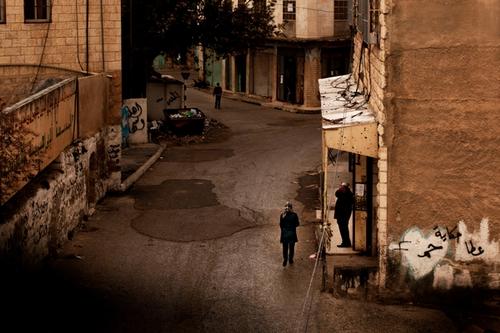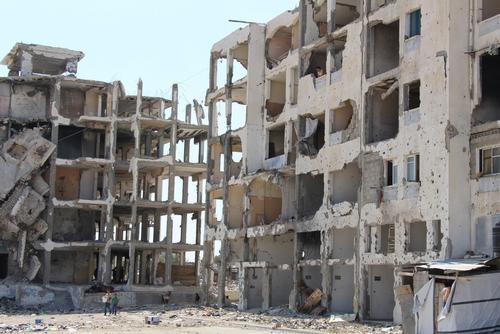For healthcare workers living in the Gaza Strip, it is extremely difficult to access the specialised medical training they need to develop their skills and provide the best quality care to patients.
Rochelle DeLacey, an intensive care nurse from Auckland, New Zealand, has done two field placements with Médecins Sans Frontières (MSF) in Gaza, providing training to local nurses.
“The nurses were really enthusiastic, they were very grateful to have the opportunity to develop their intensive care skills. Their only other option really was to Google ‘intensive care’ because they don’t have any other access to training,” she says.
Intensive care is a highly technical field of medicine which is extremely important in this small territory where the population is often subject to violence and trauma. Local people not only suffer due to the bombing and fighting, but Israel’s blockade on Gaza also tightly restricts movement of people and supplies. This means healthcare workers are unable to travel easily to access training, and there are also inadequate educational opportunities within Gaza itself. All this limits their capacity to improve their knowledge and provide the best quality care to their patients.
To improve the quality of medical care, MSF has organised a series of specialised medical training sessions in Gaza in recent years.
Bedside training; short courses
In 2013 Rochelle spent six months in Gaza, providing bedside teaching in intensive care to local nurses.
“Intensive care is not something that any of the nurses had ever received. Because they can’t leave and a lot of educationalists can’t come in, they have never received specialised intensive care nursing training in Gaza,” says Rochelle.
Also in 2013, while Rochelle was delivering the long-term training program, MSF sent a team of doctors, including an intensive care specialist, to teach a short course in intensive care to doctors.
Following on from her previous experience, MSF this year asked Rochelle to return to Gaza to teach a short course in intensive care for nurses.
Rochelle and another intensive care nurse, Sarah, travelled to Singapore to learn how to deliver the course, called the ‘Basic Collaboration’. The course, which was developed by the Chinese University of Hong Kong, aims to disseminate high quality teaching materials that can be taught by other people.
Rochelle and Sarah worked to adapt the course to the low-resource Gazan context, such as removing modules that rely on high-tech monitoring equipment that’s unavailable in Gaza.
In her five-week placement in Gaza, Rochelle taught the two-day course nine times, reaching a total of 116 nurses – the vast majority of nurses in Gaza.
Building up new skills
A pre-course and post-course exam showed that the nurses made significant gains in skills and knowledge, with 90 per cent passing the course.
One of the key challenges is to ensure that the nurses continue to apply their new skills after the training team departs. A local MSF doctor and a nurse have been tasked with providing follow-up and delivering additional training opportunities.
The lack of training is just one of many challenges for the Gazan nurses, all of whom have lived through years of insecurity and violence.
“I heard lots of stories from nurses whose family members had been injured, or who had lost their homes in the war, or who knew people who had been killed. But they are so resilient, they’ve lived through it so many times. It’s a part of their life, unfortunately,” says Rochelle.
While the training aims to improve the practice of intensive care in Gaza, ultimately it is the people of Gaza who will benefit when they need high-level critical care whether to manage serious illness, or war injuries.
“The ultimate aim is to increase the quality of care that patients receive, to improve patient outcomes, reduce mortality rates and reduce the length of hospital stay.”





